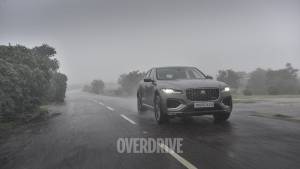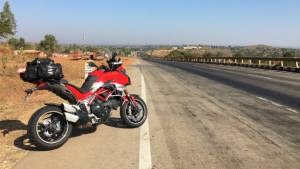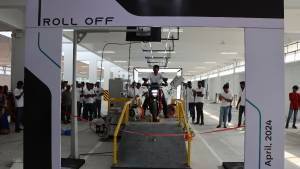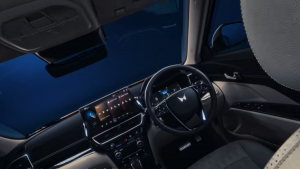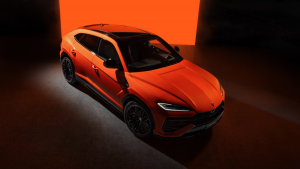Better Riding: Electronics - boon or bane?
I often come upon riders who think motorcycles shouldn't have electronics. I often disagree with them. This time, I decided to present a case for and against motorcycle electronics. And by electronics I mean two specific systems, ABS and traction control. I am leaving out ride- and brake-by-wire systems because, in my experience, most of them are tuned to mimic a direct mechanical connection and most of these systems perform rather well on this count.
Anti-braking system?
I often hear the anti-ABS argument and let say at the outset that outperforming an ABS system even from a generation or two ago is next to impossible for all but a handful of riders. That's a handful among all the riders on Earth. Many might match or outperform anti-lock brakes on clean, grippy tarmac in perfect conditions, but we all know that perfect conditions do not occur in the real world. But here is the thing. A bike with ABS performs the exact same way as a bike without ABS until you brake so hard that you breach traction. Which is what makes this argument slightly foolish. As it is, you'll spend maybe 2 per cent of your riding time on the brakes and of that maybe a tenth of the time will you spend braking so hard that you need help to stop in time and not skid the front end. And for that tenth of the 2 per cent, ABS will step in to save your unskilled, er, body. Is this worth arguing over? Despite what you've been reading, I'll take a crash-free, ABS-assisted riding career over gory stories every day of the week. Oh and stoppie-hoons, you can almost always turn ABS off on motorcycles.
Traction management systems
Stepping over the edge of traction in a controlled slide is definitely a thing of beauty. I would love to have the skill and courage to learn it, practice it and then do it. But the fact of the matter is that this is unlikely to happen. Almost all riders start making mistakes that aggravate the situation once they're on the wrong side of traction. Being in that situation, further, is usually the result of bad judgement calls that were made moments earlier. And then the lack of vehicle control catches up and the innate non-intuitive nature of motorcycles makes things worse. This is why I like traction control systems, especially sophisticated ones that allow control over the nature and threshold of intervention. The Aprilia and Ducati systems allow riders to fine-tune the nature of help they want, and advanced riders are able to rely on their considerable skills instead of electronics if they want to. There is always room for improvement in software design, but these systems are now shockingly accurate and non-intrusive.
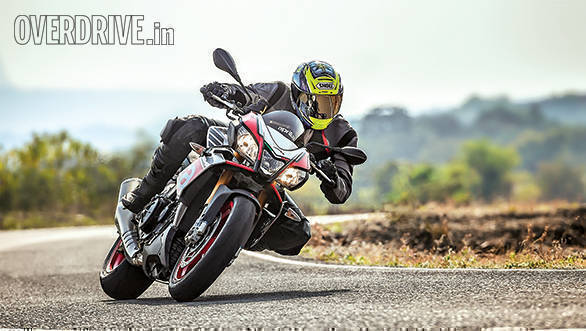
But the little nuance that slips past the naysayers is that many motorcycles on sale today wouldn't be possible without traction control. Even seriously good riders have trouble managing the performance of a 200PS sportsbike. Most riders will never have the level of skill needed. Ever. Getting to these skill levels without electronics is usually a very painful or expensive experience and often, both.
A tall and powerful motorcycle, like the Multistrada or the BMW S1000XR, similarly, is very very suboptimal in format for the 160-odd PS that they make. Without electronics you're either wheelying, sliding or riding very slowly everywhere. It is the electronics that allow you to confidently skim along rapidly at the very edge of traction while the software works out how much power to send to the rear wheel on many, many times per second.
The point I am making is twofold. First, stop living the dream that some manufacturer or the other is going to give you a motorcycle completely without electronics. I believe that boat has sailed. However, all of them currently allow you to turn all the systems off if you want to and I don't see that changing for some time to come. So don't let the arrival of electronics deter you, we are living in an age where almost every motorcycle is extremely, extremely good at what it does. Second, riders need to be skilled - there is no doubt in this. But the idea that electronics get in your way is based more in testosterone than fact. All of these systems wake up and intervene once they realise that there isn't enough grip for the torque or brake force you are demanding and then, and only then, do they intervene. Given that riding is mostly smooth with a few panic situations, the argument is facetious at best and stupid at its worst.
For more Better Riding stories, click here
Related Stories
Top Stories
Latest Videos
Most Popular
- Budget Sportbike Showdown: Kawasaki Ninja 500 vs Aprilia RS 457 vs Yamaha YZF-R3
- 2014 Triumph Daytona 675 vs 2024 Kawasaki ZX6R - A Decade of Evolution in Supersport Motorcycles
- Mumbai-Pune Expressway speed restrictions updated
- Nissan Magnite EZ-Shift review - is the AMT any good?
- Nitin Gadkari states that tax on Hybrids should be reduced to 12 percent in the coming future
